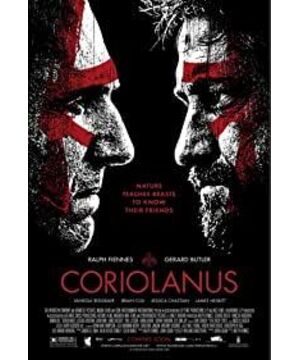Adapting a plaly as complex as Coriolanus requires wise counsel, apparently something Fiennes lacked. Some people pointed out some problems when the game was released. The core problem is the lack of interpretation of the script. The link is as follows.
https://www.nytimes.com/2012/01/22/magazine/revisiting-shakespeares-coriolanus.html
In addition, there are several more serious consequences.
1. The irreconcilible conflict between city-state political logic and the modern day perception of politics
Gone are the days when a military man is seen fit to reign. Aye, yes, Caesar fought and Caesar reigned, but the modern politics no longer accomodates a warrior king. Gone are the days of the city-state political logic. Today we view war as increasingly unnecessary because our political reality is better aided with international cooperation and negotiation, as oppose to the ancient Rome reality, which still required a militarist approach to its rule. To convince an audience that a man be nominated consul based on his military achievement -in a modern setting-at best elicits confusion (no, throwing a black dude into the scene does not assuage the mild discomfort that this state reminds one of a militarist Italy, whose most recent manifestation occurred a little over 70 years ago when it was headed by an army man-ave maria).
2. Against the Volsci
This battle is fought like counter-strike. To be fair, at the beginning the Volsci mainly raided the Roman commoners and did not engage in proper warfare with Rome. But one's perception of the war Coriolanus leads, in this picture, is at best an anti-terrorist gig, which is a conscious choice made by Fiennes, which is doubly confusing as in where he wishes this all might go, especially if we ponder the complex facts of anti-terrorism. Bottom line: this perception is not something we as an audience need to understand the play (indeed distracting).
3. What maketh Coriolanus
Hiddleston did a far better job than Fiennes in that he knows what it is about. Coriolanus is noble, and Shakespeare did not allow us to sympathize with Coriolanus for no good reason. Unfortuately Fiennes only managed to deliver a garden-variety-military-manish (read: raging simple-headedly) Coriolanus without convincing us his deserved nobility. Notably, pride is not necessarily rage, and to that extent Hiddleston's interpretation of Coriolanus allows for much room for Coriolanus' many great qualities to play out. Why, one amuses herself to think it, of course Coriolanus is human and has his fair share of flaws, but without bringing forth his goodness in proper manner the story is immediately dead.
Not Putin, no. That man isn't Coriolanus. Big mistake, big.
4. Poor coiffure (if any)
Men have less choices when it comes to straight-guy fashion, far less when it comes to hairdo. But of course one can avoide the simple mistake of bringing back an Italian militaristic bald guy.
But perhaps, after reading a quote or two from Mussolini, one might as well say that Fiennes has outdone us all by capturing what Coriolanus is really about!
View more about Coriolanus reviews











